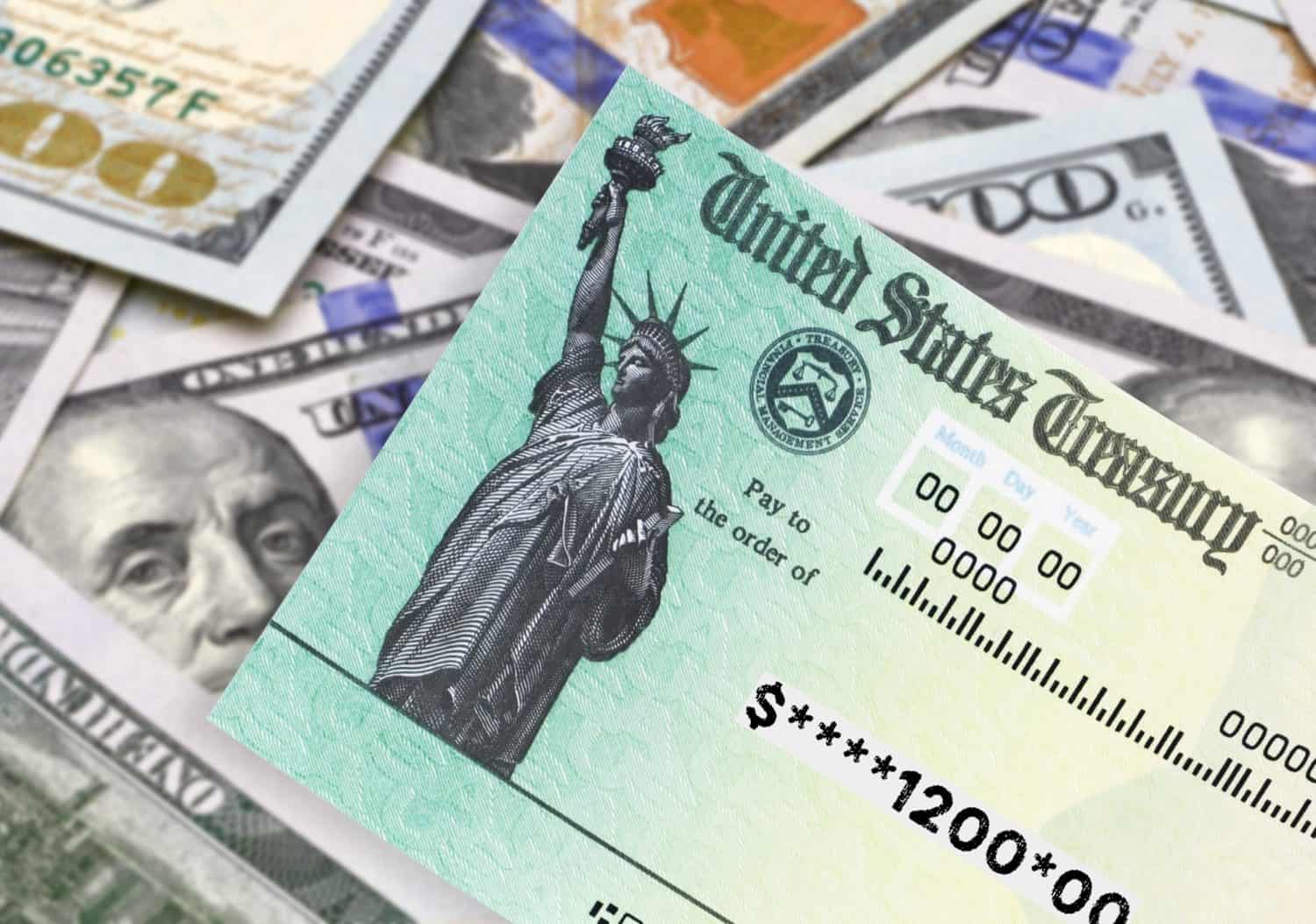The IRS Might Owe You Money. Here’s How to Find Out and Get it Back
Today is the deadline for filing your income tax returns, and while we all look forward to getting a refund, each year millions of Americans miss out on money they’re owed, often unaware that the IRS is holding funds for them. These unclaimed refunds arise from various situations, such as failing to file a return, […] The post The IRS Might Owe You Money. Here’s How to Find Out and Get it Back appeared first on 24/7 Wall St..

24/7 Wall St. Insights:
-
The IRS says billions of dollars in unclaimed tax refunds is available for claiming.
-
While there are plenty of free tools available to find out if the IRS is holding money due you, professional advice may be needed for complex situations.
-
Following a few simple steps is all that’s needed to claim hundreds or even thousands of dollars waiting for you to claim, but you need to hurry!
-
Are you ahead, or behind on retirement? SmartAsset’s free tool can match you with a financial advisor in minutes to help you answer that today. Each advisor has been carefully vetted, and must act in your best interests. Don’t waste another minute; get started by clicking here here.(Sponsor)
Today is the deadline for filing your income tax returns, and while we all look forward to getting a refund, each year millions of Americans miss out on money they’re owed, often unaware that the IRS is holding funds for them.
These unclaimed refunds arise from various situations, such as failing to file a return, errors in filing, or undelivered refund checks. Since the IRS says billions of dollars in unclaimed funds is at stake each year, it’s worth the effort to figure out if you are one of those who is owed money.
The scope of unclaimed tax refunds
The IRS holds a significant amount of unclaimed tax refunds annually. For 2025 alone, more than $1 billion affecting over 1.1 million people remains unclaimed just because they haven’t filed their 2021 claims yet — yes, 2021.
These funds result from unfiled returns where withholdings or refundable credits, like the Earned Income Tax Credit (EITC) or Child Tax Credit, were not claimed. The average unclaimed refund for 2021 is estimated at $781, though amounts vary widely based on individual circumstances.
Unclaimed refunds often result from taxpayers not filing because they earned below the filing threshold, moved without updating their address, or overlooked refundable credits. The IRS holds onto these funds for a limited time, which means taxpayers have a relatively short time to act.
What happens to unclaimed refunds?
The IRS retains unclaimed refunds for three years from the original filing deadline of the tax year in question. For instance, the deadline to claim a 2023 refund is typically April 15, 2027. If unclaimed within this period, the money is transferred to the U.S. Treasury’s general fund, becoming property of the federal government. Once this happens, taxpayers lose all rights to recover it, regardless of eligibility.
Undelivered refund checks, another source of unclaimed funds, occur when checks are returned due to incorrect addresses or are lost. The IRS attempts to reissue these but, without updated taxpayer information, the funds remain unclaimed until the three-year window closes.
Does the IRS owe you money?
There are several way to find out if the IRS is holding your refund.
- Check IRS tools. Visit the IRS website and use the “Where’s My Refund?” tool at irs.gov/refunds. You’ll need your Social Security Number or Individual Taxpayer Identification Number, filing status, and the exact refund amount from your return. This tool tracks refunds for the current and prior two tax years, showing whether a refund is pending, issued, or undelivered.
- Review Past Returns. If you didn’t file a return for a recent year, check your pay stubs, W-2s, or 1099s to see if taxes were withheld. Even if your income was below the filing threshold, you might be eligible for refundable credits. For 2024, single filers with incomes under $14,600 (or $29,200 for joint filers) aren’t required to file, but could claim refunds.
- Call the IRS. If online tools don’t clarify your status, contact the IRS at 1-800-829-1040. Be prepared for long wait times, but representatives can verify unclaimed refunds or non-filing status. Have your SSN, filing history, and any relevant documents ready.
- Check for undelivered checks. If you filed, but didn’t receive a refund, it might be undelivered. The IRS sends a CP237A notice if a check wasn’t deposited. Call 1-800-829-0115 to initiate a refund trace for lost or stolen checks.
- Use third-party help. Tax professionals or free Volunteer Income Tax Assistance (VITA) and Tax Counseling for the Eldery (TCE) programs can review prior years’ records to identify unclaimed refunds, especially for complex cases.
How to claim your refund
Once you confirm the IRS owes you money, do the following. First, file a return! Include all income sources, withholdings, and eligible credits. You can e-file through IRS Free File or mail a paper return to the address listed in the Form 1040 instructions.
If you did file a return, but it had errors that reduced your refund, file Form 1040-X (Amended U.S. Individual Income Tax Return) within three years of the original filing date or two years from paying any tax, whichever is later. Explain any changes clearly and attach any supporting documents.
If a refund check was returned, submit Form 8822 (Change of Address) to ensure any reissued checks will reach you, but verify bank details like routing and account numbers for direct deposits.
For checks that went undelivered or were lost, complete Form 3911 (Taxpayer Statement Regarding Refund) if filing jointly, or call 1-800-829-1954 for other statuses. The IRS will cancel the original check and issue a replacement, typically within 30 days.
Last, use “Where’s My Refund?” to track your claim. Processing original returns takes six to eight weeks and any amendments can take up to 16 weeks. If delays persist, contact the IRS or the Taxpayer Advocate Service at 1-877-777-4778.
Claiming refunds for a deceased relative
-
Surviving spouses. If you filed jointly, claim the refund by noting “DECEASED,” the deceased’s name, and date of death on Form 1040. For joint checks, return with Form 1310 to reissue in your name.
-
Executors or court-appointed representatives. File the final Form 1040 with a court certificate proving your role. Form 1310 is needed for amendments, not original filings.
-
Other heirs. Non-spouses or non-executors file Form 1310 with Form 1040, checking “other” on Part I, Line C, and answering estate questions. No death certificate is required, but retain it. Refunds go to the estate unless you’re the sole beneficiary.
-
Estate income. For estates earning over $600 after death, file Form 1041 and submit Form 56 to confirm your fiduciary role.
-
Time limit. The three-year rule applies. For example, 2020 refunds were due by May 17, 2024, for a 2022 death. Check unfiled years quickly.
Conclusion
Unclaimed tax refunds represent a significant opportunity for taxpayers to recover money due you. Left unclaimed, these refunds revert to the Treasury after three years.
By using IRS tools like “Where’s My Refund?,” filing or amending returns, and updating addresses, you can get your money efficiently if not necessarily quickly.
For deceased relatives, heirs can claim refunds by filing Form 1040 with Form 1310, provided they act within the deadline and establish their role. Whether for yourself or a loved one, diligence in navigating the labyrinth of IRS procedures ensures you don’t leave money on the table and just might give you much-needed financial relief.
The post The IRS Might Owe You Money. Here’s How to Find Out and Get it Back appeared first on 24/7 Wall St..

































































































































































